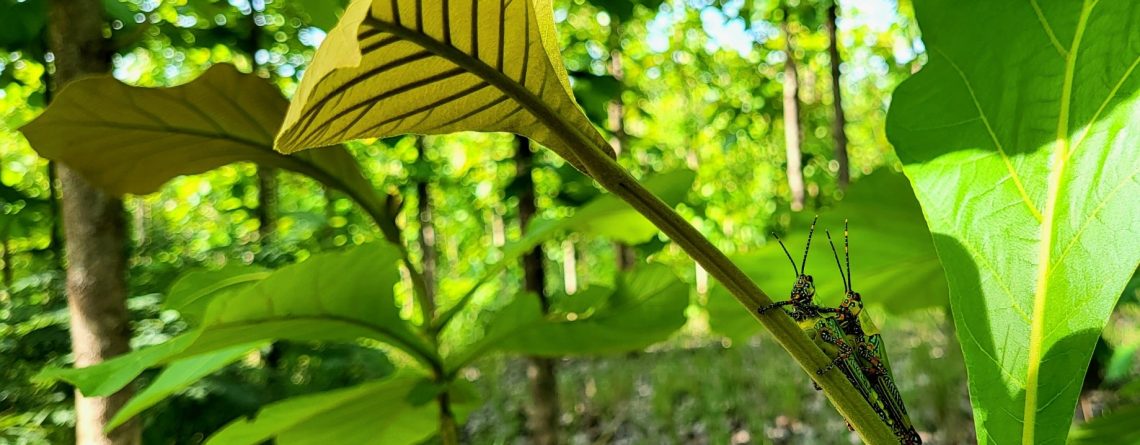To learn more about the work of Form International and the people behind their projects, we highlight the work of Anke Scheper, who works at Form International as forestry expert. Anke has expertise within the fields of (coffee) agroforestry, forest landscape restoration and corporate sustainability. She enjoys tackling complex problems by adopting an interdisciplinary approach. About her work, she says: “I find it fascinating to see how interactions between ecological and socio-economic variables create complexity but also offer potential for the recovery of crucial ecosystems. Working at Form International gives me the opportunity to engage in such interactions and contribute to the creation of sustainable value chains with respect for people and nature.” In this article we focus on the topic of biodiversity, which acts as a fundamental guiding principle across all of Form International’s projects.
“Whether it concerns selecting the right mix of tree species for a forest plantation, mapping the flora and fauna present in a potential project area or designing strategies to protect and restore native ecosystems, biodiversity always plays a central role.” Form International currently works on a reforestation project in Uganda, where a large forest reserve has suffered from severe degradation. Anke and her team are implementing the project that involves planting teak trees alongside indigenous species. Collaborating with local partners who have conducted extensive research on the different habitats, vegetation types, and animal species in the area, a comprehensive plan is developed to restore the health and diversity of the reserve.
Anke finds particular interest in projects that combine conflict resolution and conservation efforts. For example, in Indonesia, conflicts arise between people and forest elephants due to fragmented habitats. To mitigate these conflicts, Form International is involved in establishing ecocorridors that allow elephants to migrate freely while also constructing fences along the edges of the farmlands to improve conditions for agricultural development. “I believe such projects showcase Form International’s commitment to addressing biodiversity-related challenges in an integrated and sustainable manner.”
The topic of biodiversity is also reflected in the consultancy services that Form International offers to its clients. For example, companies seeking insight into the biodiversity impact of potential investments in (agro)forestry approach them for their expertise. “In addition to marketable timber and agricultural products, well-managed production forests and agroforestry systems can also provide biodiversity, soil and water protection, CO2 storage and other ecosystem services.” Anke is part of the team that assesses these potential impacts and identifies any associated risks, providing valuable information to investors considering these investments.
While much of her work is desk-based, Anke finds great satisfaction in engaging in fieldwork. Trekking through the bush with a GPS and a notebook and speaking with people on the ground is what makes this work enjoyable. “It’s in the field where you experience how things really are, back home you can only rely on maps and create expectations. Interestingly, what may seem like a complex project often becomes more feasible when you’re face-to-face with people, sitting around the table and discussing potential solutions. Patience is sometimes required, but suddenly things can start moving in the right direction. Fieldwork is an essential and rewarding part of my work, it allows me to see how the trees grow, and witness the enthusiasm of people benefiting from our projects. It dispels any doubts I may have had while sitting in the office, wondering if our actions are truly making a difference”.

